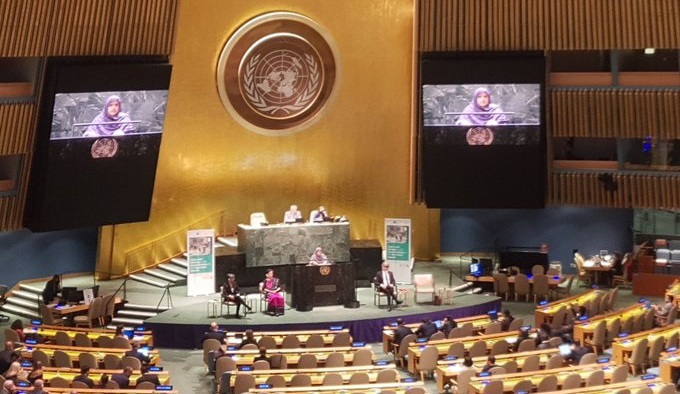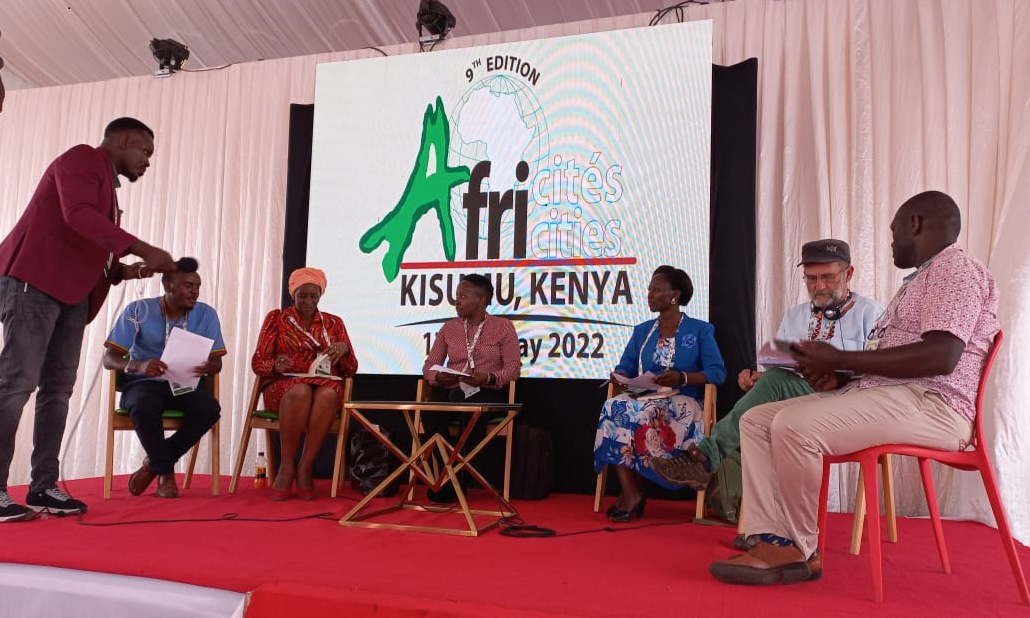
Under
the guise of ‘restoration of water bodies’ and ‘disaster management’, forced evictions in Chennai in the south
Indian state of Tamil Naduhave already affected over 400 families, while 55,000
families face the imminent threat of losing their homes.
Location and date
The most recent
incidents of forced evictions in Chennai occurred on 9 September 2017 at MSP
Nagar in Maduravoyal and on 15 September 2017 on the banks of the Cooum River
at Aminjikarai.
Affected population: qualitative and quantitative data
The Madras High Court, through various
interim orders in the case Mr. Rajiv Rai v.
Government of Tamil Nadu (W.P. No.
39234 of 2015), has urged the state of Tamil Nadu to take “expeditious steps for
early removal of encroachments by construction of alternative tenements.”
In response to the Madras High Court’s order,
the Greater Chennai Corporation (GCC), Public Works Department (PWD), and Tamil
Nadu Slum Clearance Board (TNSCB), as part of the Cooum River Eco-Restoration
Project of the Chennai Rivers Restoration Trust (CRRT) undertook joint
department surveys and started an eviction process in November 2016, which
recommenced in September 2017. The authorities, however, applied the court’s
order only to the homes of the urban poor that were considered ‘encroachments’,
not to commercial establishments along water bodies.
On 9 September 2017, GCC evicted 347 low-income families or
over 1,735 people at MSP Nagar in Maduravoyal and relocated these families in
Gudapakkam near Thirumazhisai. The Corporation claims to have provided families
alternative housing located at a distance of 24.3 kilometres from people’s original
sites of residence. The evicted families are also concerned as the sudden relocation
took place in the middle of the academic year thereby violating children’s
right to educationand leading to the loss of livelihood.[i]
On 15 September 2017, the GCC under CRRT evicted 46
families or over 230 people that had been living along the banks of the Cooum
River at Aminjikarai for more than 10 years. These families were shifted to the
remote relocation site of Perumbakkam, situated at a distance of 30 kilometres
from Aminjikarai.[ii]
The GCC has already cleared ten settlements out of the 55
settlements that were identified on the banks of the Cooum. The low income
families were relocated to houses built under the Slum Housing Board.
In another incident, as a part of the Cooum River Eco-Restoration Project, the residents of Naduvankaraire living in the fear of being evicted despite holding land titles. The officials of Greater Chennai Corporation have visited the locality, surveyes and marked the houses that will be demolished. The residents who have been asked to leave do no t want to leave their homes. The residents have no idea when the officials will come and demolish their houses. [iii]
Organizations supporting the affected population
1. Information and Resource Centre for the Deprived Urban Communities
2. Housing and Land Rights Network
3. National Alliance of Peoples’ Movements
Short description
After
the December 2015 deluge that caused widespread destruction, there was severe
criticism about the effectiveness of the state’s disaster preparedness and
response. As a result of writ petitions filed on these issues, the Madras High
Court issued a series of orders urging the state to remove all “encroachments”
along water bodies. In all these orders, only the informal settlements have
been perceived to be “encroachers,” not other constructions near water bodies.
By citing these orders, the Government of Tamil Nadu has unleashed a massive
eviction drive of the poor from the cities and is resettling them on the
fringes of the city, in inadequate resettlement sites devoid of basic
facilities and housing.
The eviction came as a surprise for the
residents at Aminijikarai, as they had not been given any legal notice. The
officials alleged that the residents had been verbally informed to move out of
their homes on Tuesday, 13 September; the demolition took place on Thursday, 15
September, in the morning at 7 a.m. The corporation’s eviction drive did not
touch the mall in Aminjikarai, but has rendered low-income families living
along the river homeless. Furthermore, the residents were informed that they
would be shifted to the resettlement site at Gudapakkam. However, on the day of
the eviction, the officials from GCC informed the affected persons that they
were being shifted to Perumbakkam. This came as a rude shock to the families.
The state government has violated multiple human
rights of the affected families as well as national and international laws by
these acts of eviction. The resettlement sites for the evicted families are located
at a distance of 24 kilometres and 30 kilometres away from their originalsites
of residence.
In the guise of providing ‘safe houses,’
these families are being provided houses in low-lying areas, marshland, and
near water bodies that are also vulnerable to floods. These resettlement
housing projects have several gaps relating to social infrastructure facility
(education, healthcare, and nutrition)[iv].The
poor and marginalized are being pushed to the fringes of the city in the
mid-academic year. This could result in an increased school drop-out rate and
loss of employment/livelihoods of affected persons.
In both the incidents of forced eviction that
took place in Chennai, reportedly, the state did not follow due process,
including providing affected persons with adequate legal notices, conducting
consultations/public hearings, carrying out impact assessments, and providing affected
persons with information on the resettlement site, the resettlement package,
location of the alternative houses, and nature of tenure at the resettlement
site.
There is also no adequate mechanism for
grievance redress for the affected persons. The Madras High Court, in its order
dated 3 March 2015 states that, “Encroachments must be tackled urgently, as a
larger public interest cannot be jeopardized merely because the encroachers
decided to sit on Government lands.” Unfortunately in all these cases, only the
‘slum-dwellers’ are perceived to be encroachers. The Government of Tamil Nadu
has not taken efforts to clear commercial establishments and residential
buildings of other income groups.

[i] ‘Greater Chennai Corporation to evict 46 more
families from Cooum bank,’ The Times of India, 13 September 2017.Available
at: http://timesofindia.indiatimes.com/city/chennai/corporation-to-evict-46-more-families-from-cooum-bank/articleshow/60485130.cms
Also see: ‘Eviction drive at Cooum bank resumes,’The Hindu, 9 September 2017. Available
at: http://www.thehindu.com/news/cities/chennai/eviction-drive-on-cooum-bank-resumes/article19649179.ece
[ii] ‘46 families evicted from Cooum banks in Chennai,’ The Times of India, 14 September 2017. Available
at:
http://timesofindia.indiatimes.com/city/chennai/46-families-evicted-from-cooum-banks-in-chennai/articleshow/60511955.cms
Also see: ‘Chennai: Thousands to be evicted with no ‘resettlement’ in
sight’, Indian Express, 21 July 2017.
Available at:
http://www.newindianexpress.com/cities/chennai/2017/jul/21/chennai-thousands-to-be-evicted-with-no-resettlement-in-sight-1631457.html
[iii]‘Residents
of Naduvankarai face eviction despite holding land titles’, The Hindu, 26 September 2017. Available at: http://www.thehindu.com/news/cities/chennai/residents-of-naduvankarai-face-eviction-despite-holding-land-titles/article19753907.ece
[iv] For more
information, see: From Deluge to Displacement: The Impact of Post-flood
Evictions and Resettlement in Chennai, Information and Resource Centre for
the Deprived Urban Communities, and Housing and Land Right Network, New Delhi,
July 2017. Available at:
http://hlrn.org.in/documents/Deluge_to_Displacement_Chennai.pdf
Also see: Forced to the Fringes: Disasters of ‘Resettlement’ in
India, Report Two: Kannagi Nagar, New Delhi, 2014. Available at:
http://hlrn.org.in/documents/Kannagi_Nagar_Report_2.pdf


